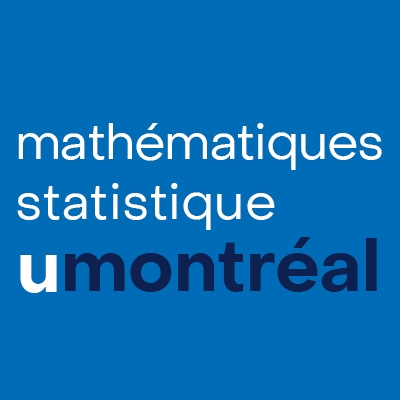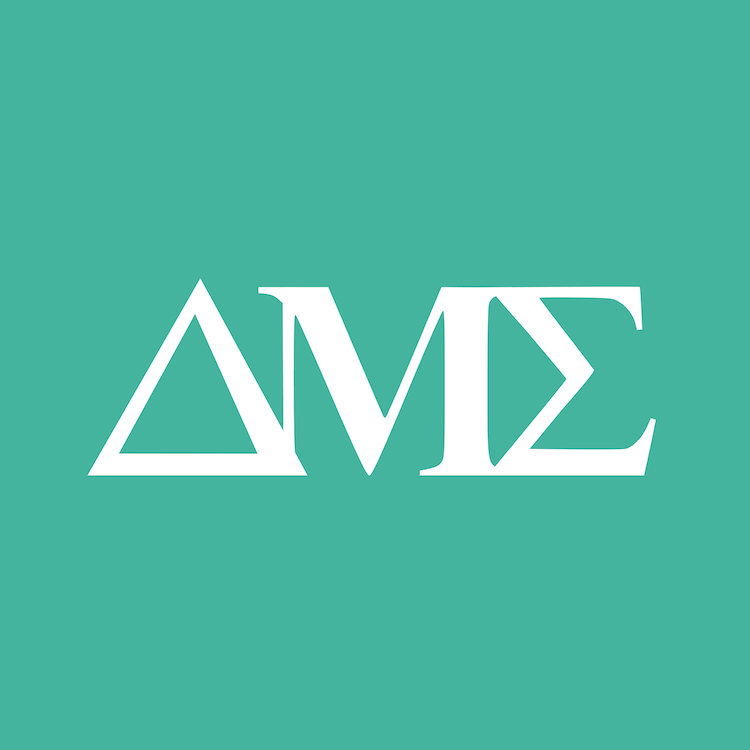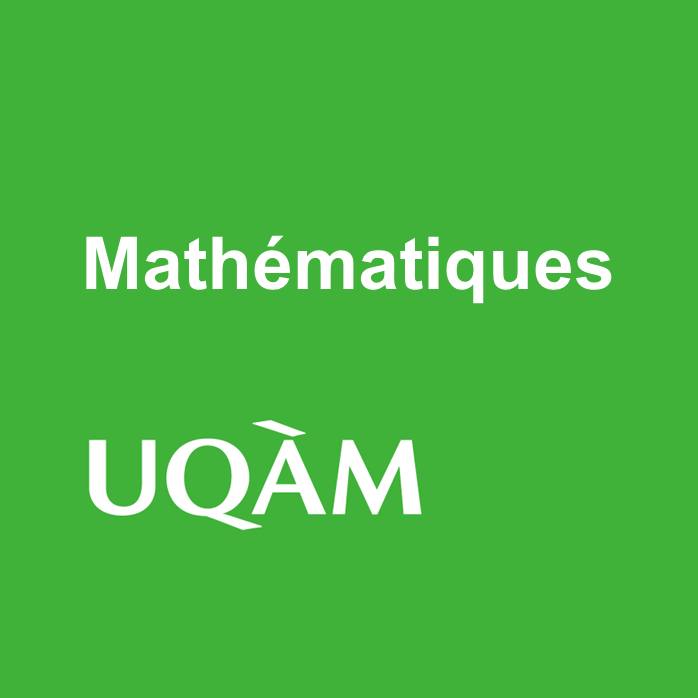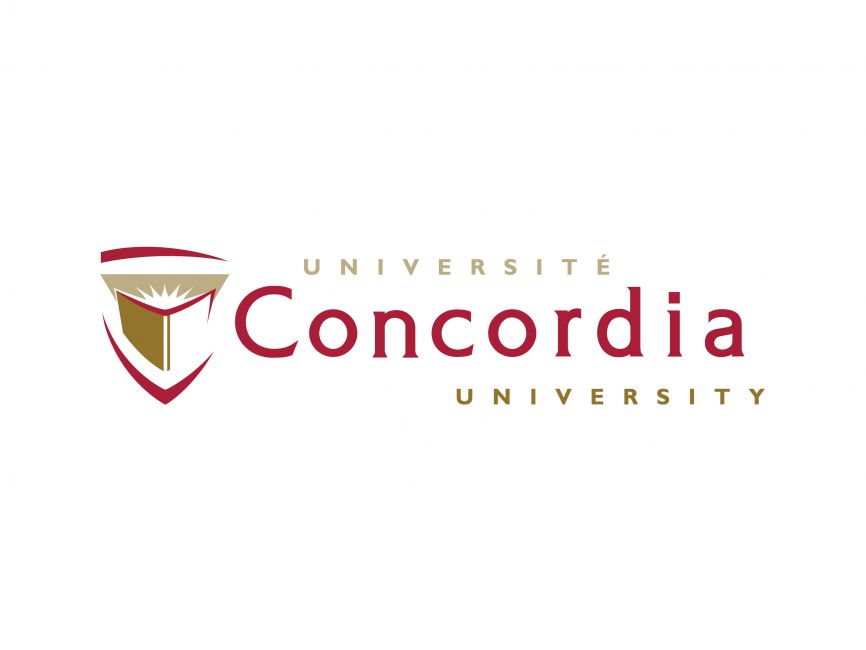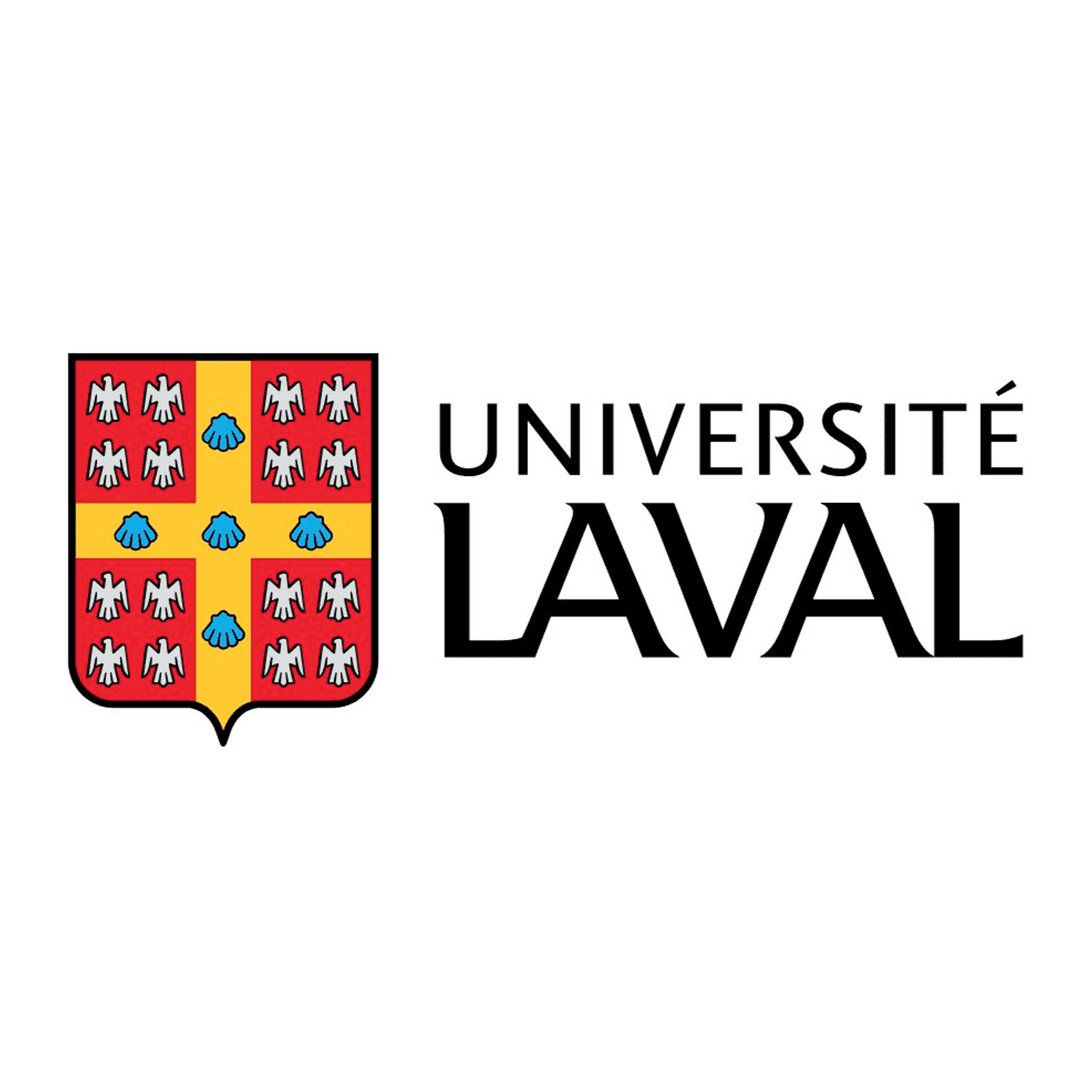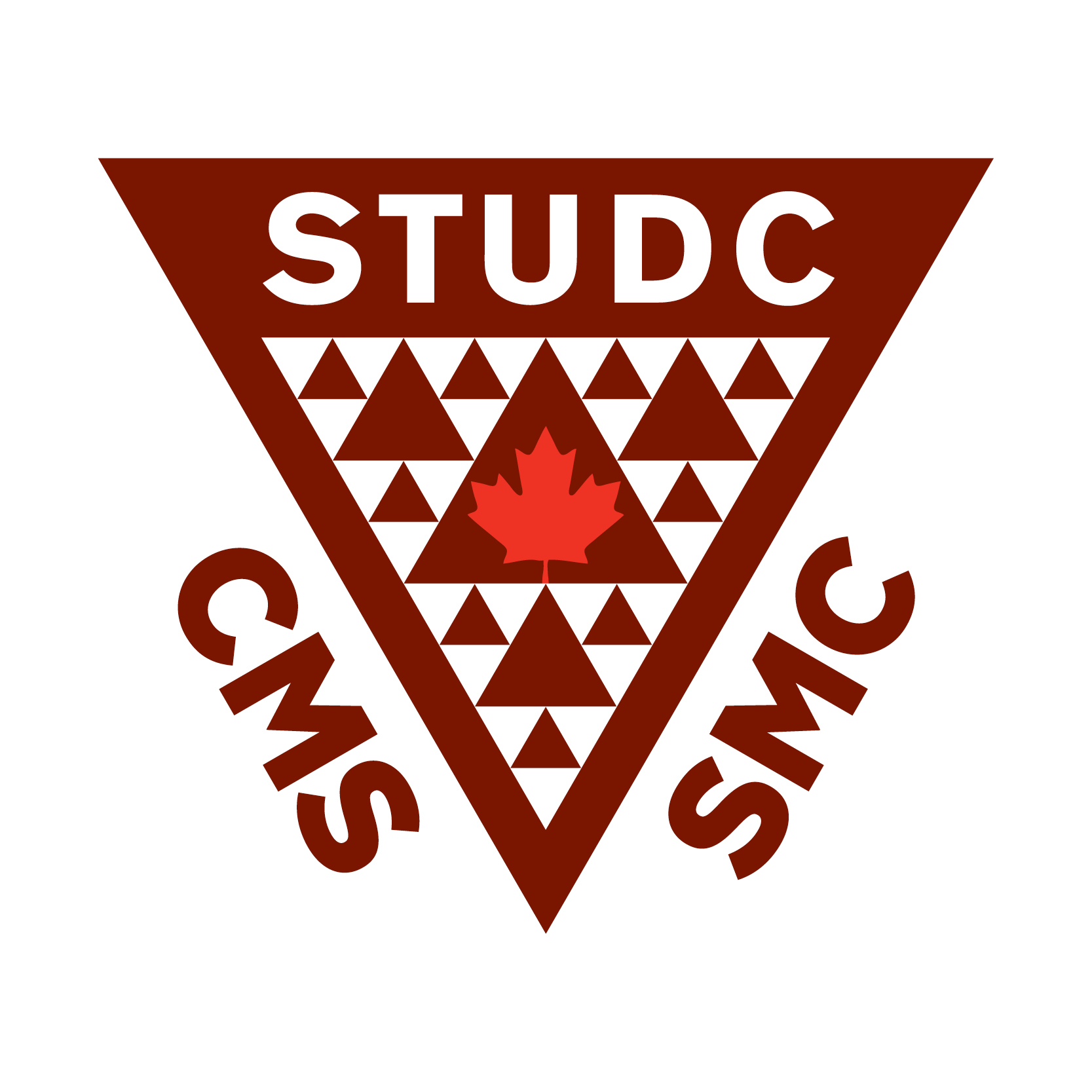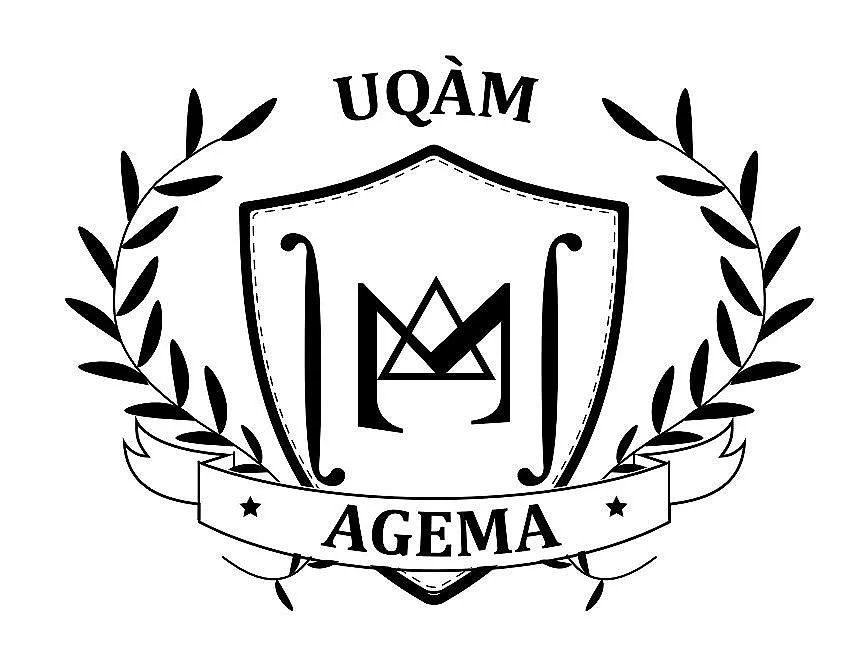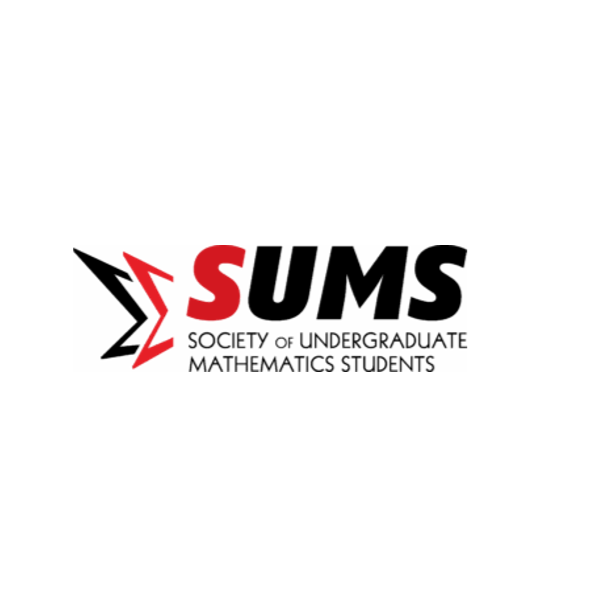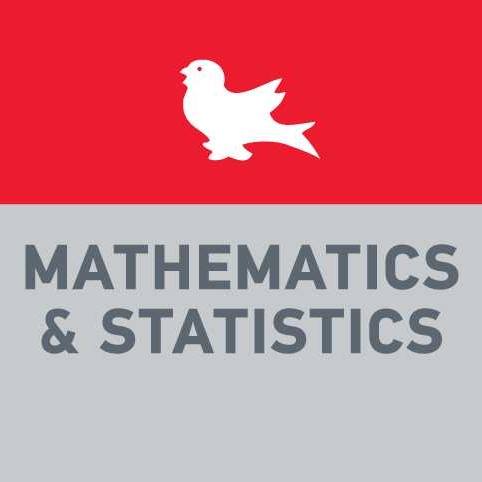SUMM 2026
The Seminars in Undergraduate Mathematics in Montreal
January 9 to January 11, 2026
MIL Campus × McGill University
Share Your Passion of Mathematics
The Seminars in Undergraduate Mathematics in Montreal (SUMM) are organized by undergraduate students from Montreal universities. The main objective is to create an environment facilitating the exchange of ideas and interests as well as allowing students to network.
The SUMM weekend is aimed at undergraduate students in mathematics or other related scientific fields. Graduate students are also welcome. This year, the conference will be held from January 9 to January 11, 2026.
The weekend consist of two days of presentations given by undergraduate students and invited professors. The presentations can cover a broad range of subjects, from mathematical physics to the applications of artificial intelligence as well as the history and philosophy of mathematics.
During the SUMM, students can choose to give a talk, or simply to attend presentations given by their peers. It's an occasion to share the passion for mathematics in a stimulating environment, while networking with other passionate students over the weekend.
We hope to see you there!
See you again in 2027!
Why attend the SUMM?
Meet people
Meet like-minded students and exchange ideas on your favorite mathematical topics
Expand your knowledge
Learn from student presentations on different subject of mathematics
Show your work
An opportunity to present your work and perfect your presentation skills
Schedule
| Friday January 9, 2026 (MIL Campus) | |||
|---|---|---|---|
| 18:00 - 18:45 | Check-in | ||
| 18:45 - 19:00 | Opening Remarks | ||
| 19:00 - 20:00 | Keynote : Véronique Bazier-Matte (Université Laval) (Room A-3502.1) | ||
| 20:00 - 22:00 | Wine and Cheese | ||
| Saturday January 10, 2026 (Trottier Building) | |||
| Room 0060 | Room 1080 | Room 0070 | |
| 8:30 - 9:30 | Check-in and Breakfast | ||
| 9:30 - 10:00 | Nathan Acheampong Preuves polynomiales |
Johnson Zhang Statistical Inference for Survival Data |
|
| 10:00 - 10:30 | Loïc Boucher-Dubuc Obstructions to Satisfiability |
Santiago Novoa Cattivelli Spin precession and neutrino helicity flip in various space times |
|
| 10:30 - 11:00 | Coffee Break | ||
| 11:00 - 12:00 | Keynote : Courtney Paquette (McGill University) (Room 0100) | ||
| 12:30 - 13:00 | Suelynn Lee, Kindness Chen et Guli Mokady Bounding the Number of N-Dimensional Crystallographic Groups |
Élisabeth Séguin Permutations et bases triangulaires |
Parker Sherry Modelling Agent-Based Herd Dynamics using Voronoi Topological Perception |
| 13:00 - 14:15 | Lunch | ||
| 14:15 - 14:45 | Noah Baddour Les caractères et classes de conjugaison d'un groupe: une relation encore plus étroite qu'on le pensait? |
Samuel Weinbaum General Relativity and Blackhole Singularities |
Maya Smith How Much Can You Really Learn from Noisy Data? |
| 14:45 - 15:15 | Thomas Lacasse Et si on formalisait les infinitésimaux? Une introduction à la construction des hyperréels |
Gershon Levin Black Holes and Penrose's Singularity Theorem |
Laurence Liang Desirable Convergence in Reinforcement Learning |
| 15:15 - 15:45 | Nikki Veilleux Thermodynamics of Gravity: Exact Solution Phenomolgy |
Frédéric-Alexandre Lacasse Quand les mathématiques précèdent la physique : de Riemann aux trous noirs |
|
| 15:45 - 16:30 | Coffee break | ||
| 16:30 - 17:30 | Keynote : Vasilisa Shramchenko (Université de Sherbrooke) (Room 0100) | ||
| 18:30 - | Dinner : Le Saint-Bock (1749 rue Saint-Denis) | ||
| Sunday January 11, 2026 (Trottier Building) | |||
| Room 0060 | Room 1080 | Room 0070 | |
| 8:30 - 9:30 | Check-in and Breakfast | ||
| 9:30 - 10:00 | Nathan Acheampong Sparing Iteration-Formulations |
Hervé Guimond Espaces de transformations et éléments de théorie de Teichmüller |
|
| 10:00 - 10:30 | Étienne Bouchard Communication Complexity |
Rebecca Abi Abdallah Les probabilités et l'anatomie des entiers |
|
| 10:30 - 11:00 | Coffee Break | ||
| 11:00 - 12:00 | Keynote : Lucile Devin (Université du Littoral Côte d'Opale) (Room 0100) | ||
| 12:00 - 12:15 | Closing Remarks | ||
Keynote Speakers
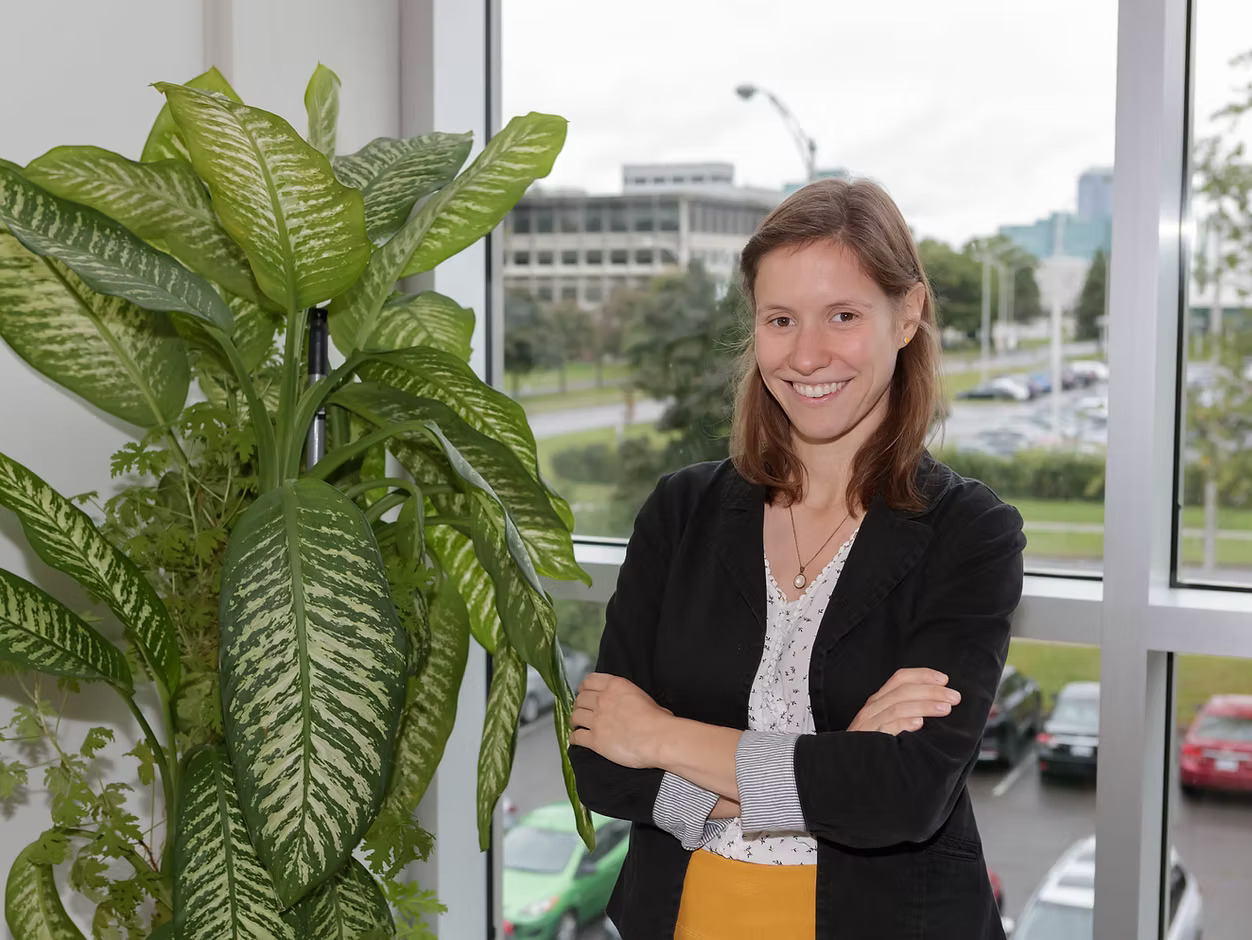
Véronique Bazier-Matte
Triangulations de surfaces
Cette présentation explore le dénombrement des triangulations de surfaces. Nous débutons par le cas des polygones convexes, dont le comptage mène aux nombres de Catalan, tout en abordant la notion de "flip" entre triangulations. Nous étudions ensuite le ruban de Möbius, surface non orientable, dont nous détaillons les représentations. Enfin, nous établissons une formule pour le nombre de triangulations d'un ruban de Möbius avec n points marqués, en démontrant comment ce résultat se simplifie grâce aux nombres de Catalan.
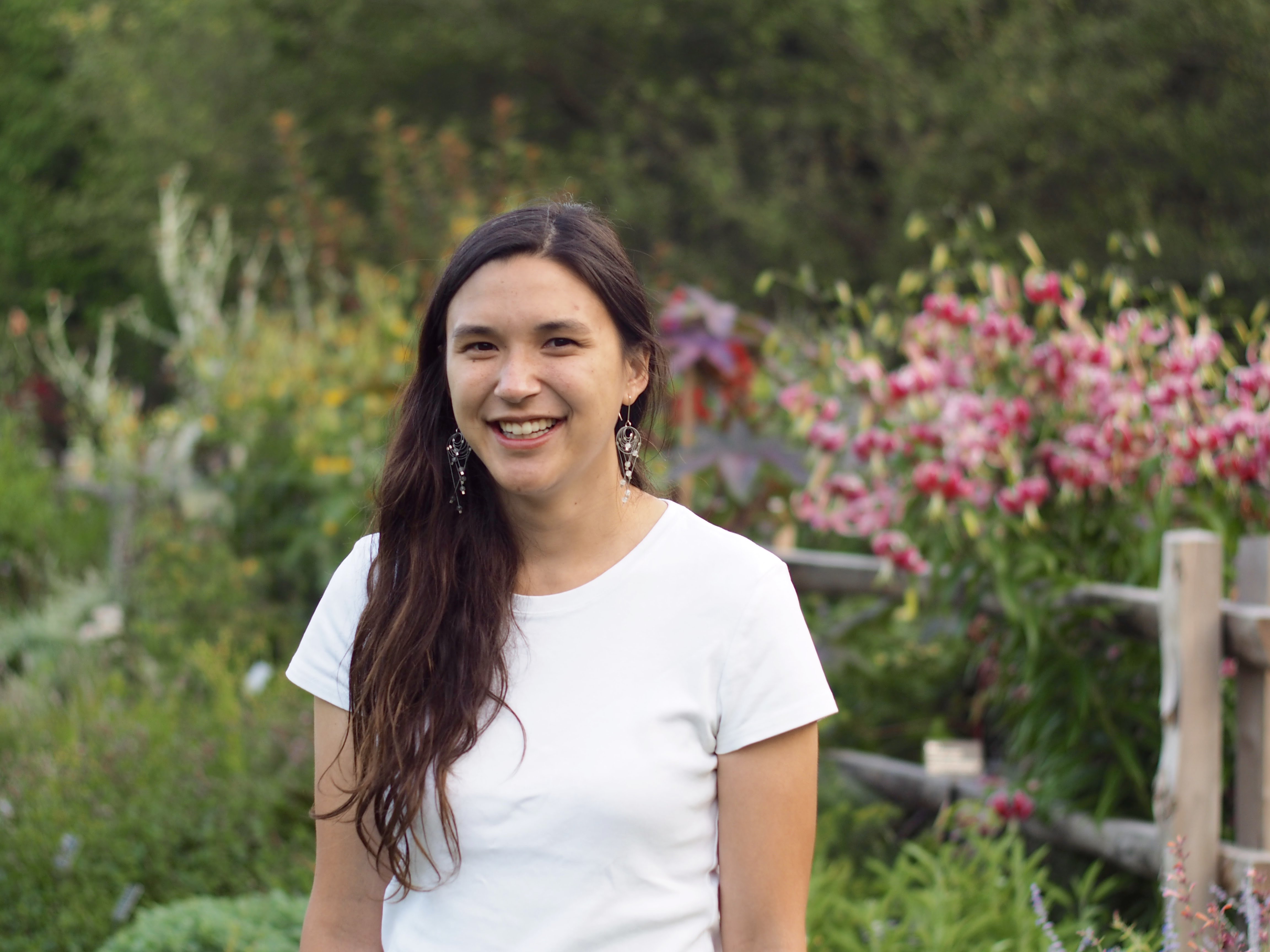
Courtney Paquette
High-dimensional Optimization in Machine Learning with Applications to Scaling Limits and Compute-Optimal Neural Scaling Laws
Given the massive scale of modern ML models, we now only get a single shot to train them effectively. This restricts our ability to test multiple architectures and hyper-parameter configurations. Instead, we need to understand how these models scale, allowing us to experiment with smaller problems and then apply those insights to larger-scale models. In this talk, I will present a framework for analyzing scaling laws in stochastic learning algorithms using a power-law random features model, leveraging high-dimensional probability and random matrix theory. I will then use this scaling law to address the compute-optimal question: How should we choose model size and hyper-parameters to achieve the best possible performance in the most compute-efficient manner?
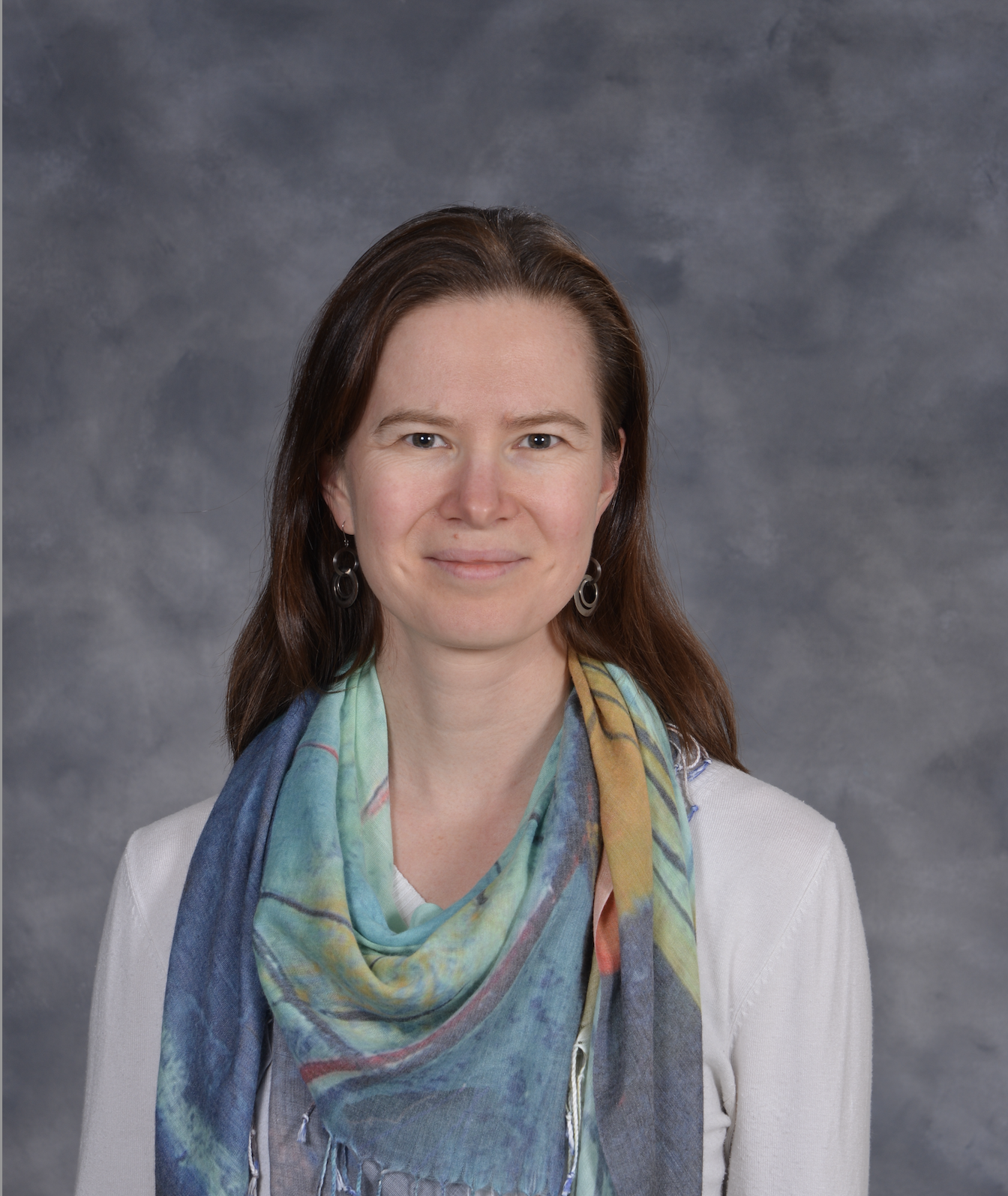
Vasilisa Shramchenko
Smart families of elliptic curves and equations of mathematical physics
An elliptic curve is a topological torus with a complex structure. This means, there is a way to view the points on the torus almost as being complex numbers, just like on the complex plane. And there is an infinite number of ways in which such a complex structure can be defined on a torus. We thus have an infinite number of elliptic curves. A complex structure allows us to define functions and differentials on an elliptic curve, as well as contour integrals. The theory of elliptic curves, and more generally of Riemann surfaces, is well developed and has many applications, from number theory to string theory. In particular, using a given elliptic curve, one may construct solutions to various differential equations known in physics, such as the Korteweg–De Vries (KdV) equation and Painlevé equations. In this talk, I will define some particular families of elliptic curves, which in their turn are governed by new differential equations, and discuss their applications in the context of the KdV and Painlevé equations.
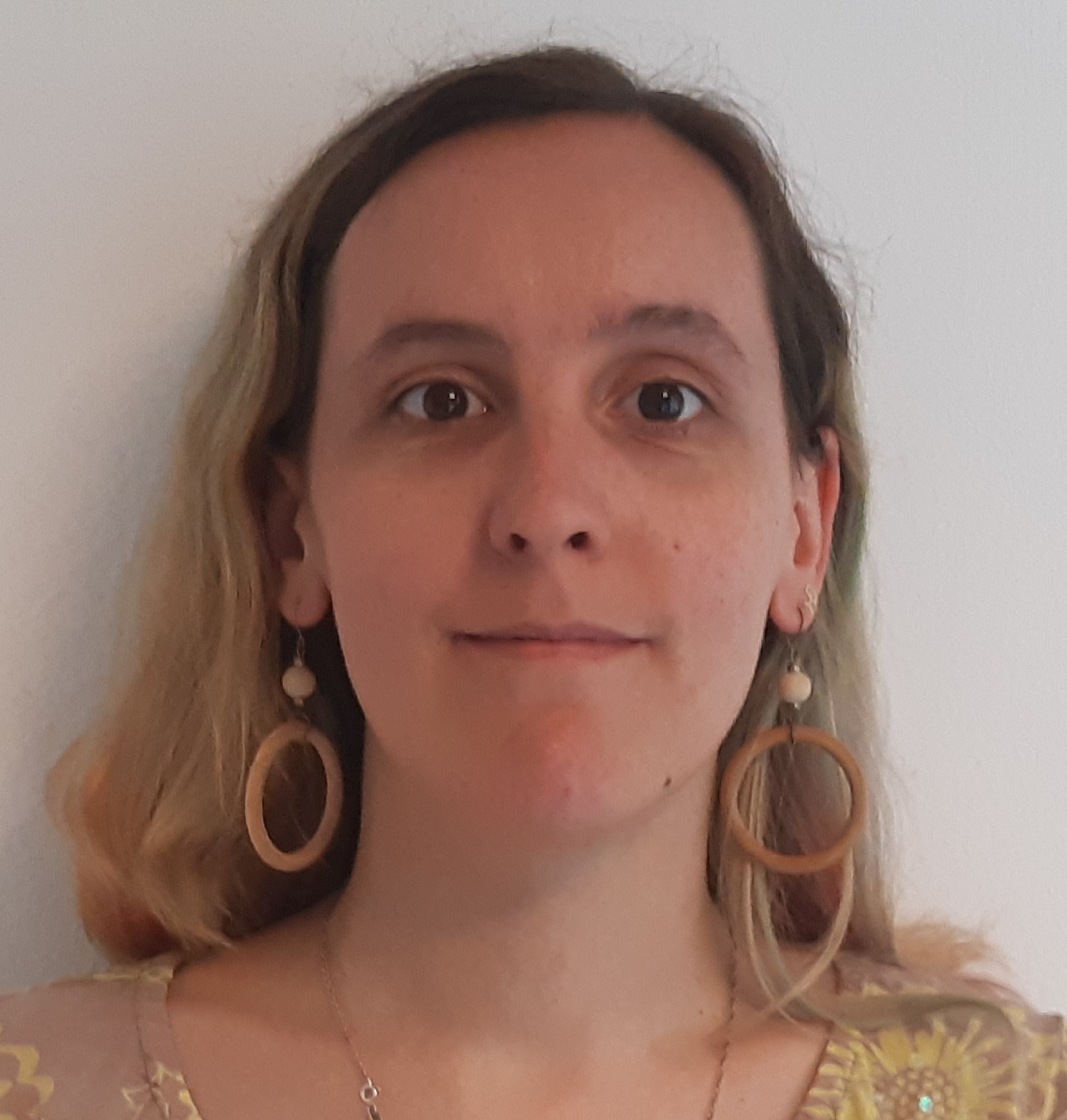
Lucile Devin
Biases in the distribution of prime numbers
Biases in the distribution of prime numbers
Prime numbers have interested mathematicians for thousands of years, but we have only been able to prove (thanks to complex analysis!) that they distribute well in congruence classes a couple of hundred years ago. We find that there are "equal" chances for a prime chosen "randomly" to be congruent to 1 or to 3 modulo 4. Having a closer look, Chebyshev noticed that there is howerver a "bias" is this perfect distribution. This talk aims at observing and explaining the origin of the bias, while giving a more precise sense to the words in quoting marks. We will then consider other ways to distribute prime numbers, that are more or less biased.
Conférences étudiantes
Nathan Acheampong, Université de Montréal
Preuves polynomiales
Les polynômes sont de retour pour encore une autre application! Les preuves sont habituellement introduites comme étant une suite de formules liées par des règles d'inférence, or, il s'avère que cette manière de concevoir les preuves n'est pas la seule. Au cours de cette présentation, on étudira de plus près ce qu'est une preuve et comment les polynômes peuvent nous assister à formaliser notre raisonnement mathématique. Vous noterez le sens double du titre...
Johnson Zhang, Université McGill
Statistical Inference for Survival Data
Survival analysis studies the behavior of time-to-event data, which arise naturally in modern statistical studies and are characterized by incomplete observations due to censoring and truncation. These unique features invalidate classical statistical methods and require the development of specialized inferential tools. This talk presents an introduction to basic theories and methodologies used for modeling time-to-event data, which are widely used in biostatistical and epidemiological research. We introduce the censoring and truncation mechanism, follow by the famous Kaplan-Meier (KM) estimator and its variants. If time permits, we will also talk about Cox proportional hazard (PH) model and regression techniques.
Loïc Boucher-Dubuc, Université McGill
Obstructions to Satisfiability
What makes a set of sentences false in every universe? Why are some proofs harder than others? In this talk, we describe algebraic methods that help investigate this kind of phenomenon.
Santiago Novoa Cattivelli, Université Bishop's
Spin precession and neutrino helicity flip in various space times
We systematically study spin precession of neutral particles freely moving in spacetime. We first derive the formula describing spin precession within a general stationary and axisymmetric spacetime. We then apply our formula to study spin precession of neutral spinning particles moving within various spacetimes that are among the most ubiquitous ones found in the literature. Our results are then used to extract the helicity flip probability for neutrinos propagating in each one of those selected spacetimes. It is found that low-energy neutrinos acquire a spin-flip probability that is as large as unity in all the spacetimes considered here. The remarkable result, however, is that while spin-flip probability for high-energy neutrinos remains insignificant in most of these spacetimes, some of them do allow spin-flip probability to reach unity even for high-energy neutrinos.
Suelynn Lee, Kindness Chen et Guli Mokady, Université McGill
Bounding the Number of N-Dimensional Crystallographic Groups
A crystallographic group is a symmetry of crystal lattices, which describes the crystal structure. In the early 20th century, L. Bieberbach proved that there are only finitely many classes of n-dimensional crystallographic groups up to symmetry, a result also known as the Second Bieberbach Theorem. Later in 1974, R. Schwarzenberger conjectured that the asymptotic upper bound is exactly O(2^{n^2}), but this remains unproven to date. In 1985, Buser established an upper bound of \exp{\exp{4n^2}} using a geometric approach. In this presentation, we present strategies for bounding the number of such n-dimensional groups in general and outline possible approaches for tightening this upper bound using group cohomology and integral representation theory. Following this approach, we aim to compute a more precise upper bound, possibly closing the gap between the rough estimates and the asymptotic upper bound that has been conjectured.
Parker Sherry, Université McGill
Modelling Agent-Based Herd Dynamics using Voronoi Topological Perception
Mathematical models of collective animal behaviour provide valuable insight into a wide range of biological phenomena, and their predictions help inform the safe and efficient management of animal populations. Despite the abundance of competing models, it remains unclear which mechanisms best describe how animals communicate motion information and make collective decisions. The Voronoi Topological Perception (VTP) framework is a model of collective behaviour that uses Voronoi diagrams to encode the connectivity and communicative structure of a group of autonomous agents. Because Voronoi diagrams naturally capture local notions of proximity, they provide a transparent and intuitive basis for agent-level decision-making. In this talk, I will introduce the VTP model and describe its extension to shepherding processes, in which a single agent from a different population simultaneously influences and controls multiple coordinated agents.
Noah Baddour, Université McGill
Les caractères et classes de conjugaison d'un groupe: une relation encore plus étroite qu'on le pensait?
Une représentation d'un groupe G est une façon de visualiser G en tant que groupe de matrices agissant sur un espace vectoriel. Ces représentations nous aident à mieux comprendre G: entre autres, un parallèle surprennament étroit est présent entre les représentations d'un groupe fini et ses classes de conjugaisons. Nous allons explorer cette dualité en étudiant deux fonctions qui permettent respectivement d'évaluer à quel point trois classes de conjugaisons ou trois représentations se complémentent (ou pas du tout!).
Samuel Weinbaum, Université McGill
General Relativity and Blackhole Singularities
This talk will give an overview of General Relativity and in particular the black hole singularity theorems of Penrose and Hawking. We will cover the historical background and the basic necessary mathematics and physics to get an idea of the methods and concepts used.
Maya Smith, Université McGill
How Much Can You Really Learn from Noisy Data?
Quantitative Magnetic Resonance Imaging (MRI) tries to measure physical parameters of tissue using data that are always affected by noise. This naturally leads to the question: how accurately can we ever expect to reconstruct these parameters from our data? In this talk, I introduce the Cramér–Rao Lower Bound (CRLB), a mathematical tool that allows us to determine the best possible precision any unbiased parameter-estimation method could achieve, no matter how clever the algorithm is. After a short overview of how MRI works, I explain how the CRLB helps us understand the limits noise places on our measurements, evaluate estimation methods, and design better experiments. The focus is on building intuition rather than technical details, and the talk should be accessible to anyone with a basic background in calculus and probability or statistics.
Thomas Lacasse, Université de Montréal
Et si on formalisait les infinitésimaux? Une introduction à la construction des hyperréels
Afin de comprendre ce qu'est un nombre hyperréel, on redécouvrira la définition d'un ultrafiltre et d'un ultraproduit. Grâce à ceux-cis, on peut non-seulement définir les hyperréels, mais aussi les hypernaturels, hyperentiers, hypercomplexes et autres modèles non-standards. On mentionnera le théorème de Łoś, le principe de transfert et d'autres résultats importants qui impliquent les ultraproduits, comme le théorème de compacité en théorie des modèles.
Gershon Levin, Université McGill
Black Holes and Penrose's Singularity Theorem
In this presentation, we will examine the mathematical structures underlying classical physics, special relativity, and, ultimately, general relativity. We proceed sequentially, with each framework motivating the next. Along the way, we identify the central goal of classical deterministic physics and explain how spacetime singularities pose a fundamental challenge to this objective. We then clarify what singularities are, and what they are not, before concluding with Penrose’s black hole singularity theorem.
Laurence Liang, Université McGill
Desirable Convergence in Reinforcement Learning
Reinforcement learning (RL) enables a "policy model" to learn desirable behaviors when the environment dynamics are complex or unknown. However, policies in RL can exhibit widely different behaviours even with similar starting conditions. As a result, when can an RL policy converge desirably such that the resulting policy's behaviours are sufficiently bounded and similar? Thus, this talk examines how constrained Markov decision processes (CMDPs) can be formulated to encourage the RL policy to converge within a desirable region. Finally, this talk also explores the theoretical and empirical results (notably from robotics) that support the implementation of CMPDs.
Élisabeth Séguin, Université de Montréal
Permutations et bases triangulaires
Cette présentation s’intéressera à la bijection entre deux objets algébriques : les 3-permutations de taille n et les bases triangulaires, un concept relié aux coloriages de triangles dans Z.
Nikki Veilleux, Université Bishop's
Thermodynamics of Gravity: Exact Solution Phenomolgy
A family of solutions of Brans-Dicke theory is analyzed to probe the new thermal view in which General Relativity is the zero-temperature (equilibrium) state of scalar-tensor gravity.
Nathan Acheampong, Université de Montréal
Sparing Iteration-Formulations
In the field of (propositonal) proof complexity, we are interested in determining the strength of various proof systems in contrast to "traditional" complexity theory, where we are interested in determining the hardness of various families of problems. It turns out that there is a strong connection between the subclasses of TFNP, the class of search problems for which there is guaranteed to be a solution whose verification is short, and propositional proof systems. Using this connection, it is simple to prove that a problem that reduces to the Iteration problem can be reduced to a small instance of the Iteration problem. Last summer, we found a new proof of this result bypassing proof complexity which we present here. (Joint work with Jake Gameroff & Robert Robere, McGill University).
Hervé Guimond, Université de Montréal
Espaces de transformations et éléments de théorie de Teichmüller
Nous présenterons des définitions et exemples d’espaces de modules de transformations pour mettre la table pour introduire la théorie de Teichmuller. Nous introduirons aussi les surfaces de Riemann de manière intuitive. La présentation se veut une introduction intuitive à ces concepts de géométrie et topologie.
Étienne Bouchard, Université de Montréal
Communication Complexity
Alice possède un input x et Bob un input y, et leur objectif est de calculer une fonction f(x,y). La question centrale est de déterminer la quantité minimale d’information qu’ils doivent échanger pour y parvenir. Cette présentation introduira ce cadre et ses notions fondamentales.
Frédéric-Alexandre Lacasse, Université de Montréal
Quand les mathématiques précèdent la physique : de Riemann aux trous noirs
Depuis Newton, nous sommes parvenus à décrire mathématiquement, de manière de plus en plus sophistiquée, le monde qui nous entoure. En partant d’observations expérimentales, nous formulons des lois visant à décrire la réalité physique. Mais est-il possible d’emprunter le chemin inverse, en partant d’une structure mathématique pour en déduire des prédictions physiques ? Pour illustrer cette démarche, nous nous plongerons dans l’histoire de l’avènement de la théorie de la relativité générale. Nous présenterons certains outils mathématiques fondamentaux à son développement, en particulier la géométrie différentielle et la géométrie pseudo-riemannienne, qui permettent de modéliser l’espace-temps comme une variété munie d’une métrique de signature lorentzienne. Nous verrons ensuite comment les équations d’Einstein, reliant la géométrie de l’espace-temps à la distribution de matière et d’énergie, ont conduit à la prédiction de phénomènes nouveaux, tels que l’existence des trous noirs.
Rebecca Abi Abdallah, Université de Montréal
Les probabilités et l'anatomie des entiers
De nombreuses idées probabilistes telles la méthode des moments, les marches aléatoires, la théorie des matrices aléatoires sont récemment apparues dans les travaux de plusieurs théoriciens des nombres. Pour illustrer cette curieuse rencontre entre hasard et arithmétique, nous allons exposer un cas simple en étudiant la fonction omega(n) qui compte le nombre de facteurs premiers distincts d'un entier. En effet, l'analogie avec la loi de Poisson donnera une première intuition probabiliste. Mais pour décrire les fluctuations de omega(n) autour de sa moyenne, la loi normale sera un modèle asymptotique plus fin. Nous conclurons en montrant une application de certaines propriétés de cette fonction permettant de retrouver des résultats liés au problème de la table de multiplication.


